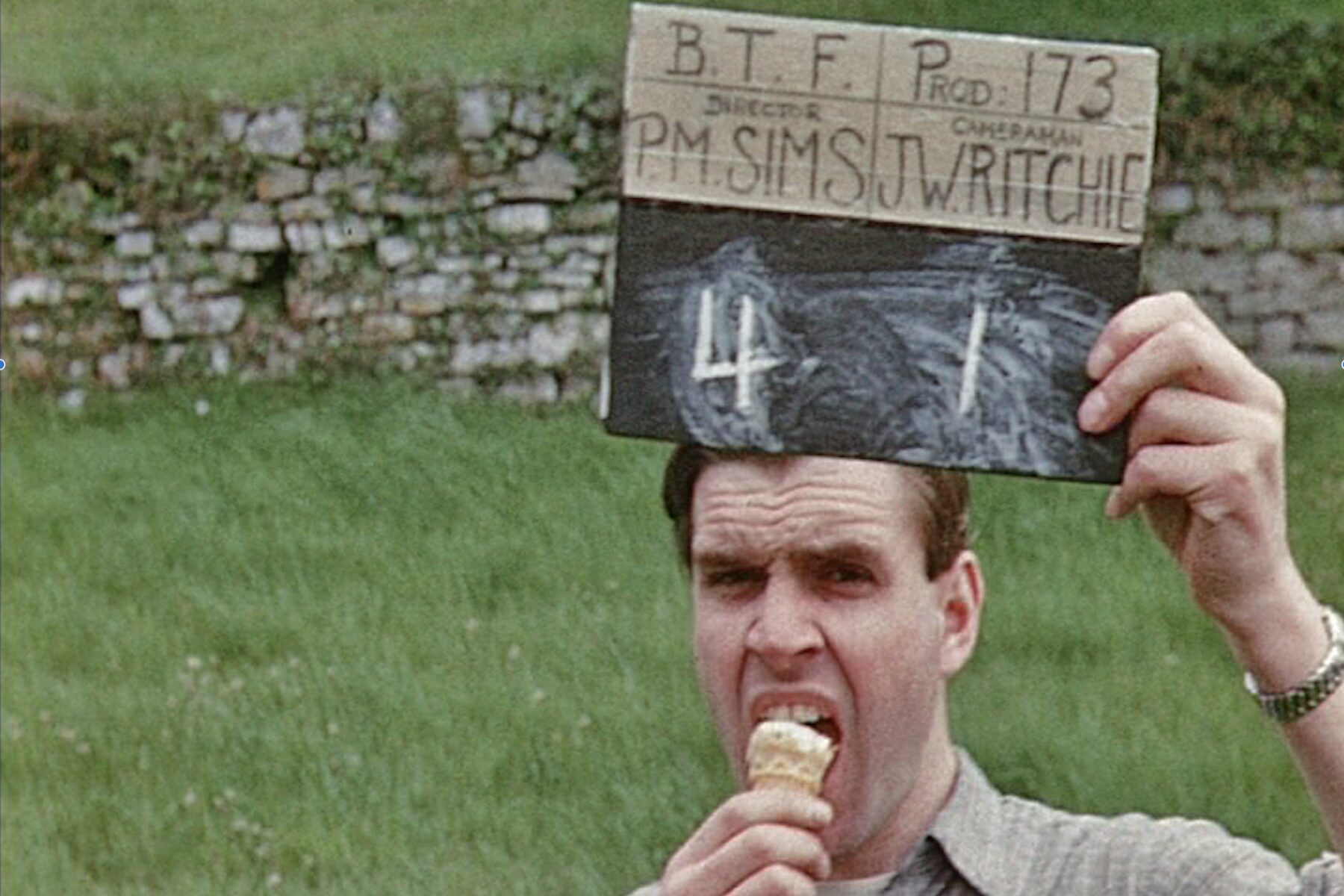His Gods were his Gods. No arguments allowed.
His Villains, either through imagined incompetence or banality, were to be universally condemned by me, my family, and by any friends I could ask. Any photographs of the Villains going about their legitimate business on the podium were to be held aloft for general merriment. Herbert von Karajan, who according to David, had conducted in Jackboots, was the most villainous of all Villains with Betty Blackhead (Elizabeth Schwarzkopf) coming a close second . A Villain of lesser consequence was Edward Heath (always ‘the Grocer’ to David) whose portly form and political behaviour David held in contempt. “But David, doesn’t Edward Heath conduct competently? He is a knowledgeable musician.” David knew it was a wind up, so he chose to guffaw rather than have a rattling good tirade. I sensed he was not a little jealous at Heath being entrusted with the European Youth Orchestra.
Sir Andrew Davis was a good example of a musician who had become a Villain in David’s eyes through “his lacklustre performances, his musical caution and general complacency ” Any appearance, in any role, playing any music, was greeted with a snort and a scowl. The only pleasure Davis ever gave David was by moving from London to Chicago in 2000. I was rung in the early evening the minute David had found this out. From time to time I would surreptitiously play a Davis performance as a mystery experience. Radio Three calls this sort of exercise “The Innocent Ear” Davis was a contemporary of mine at Watford Grammar School and lived on the other side of Gade Avenue. Even this failed to elicit any Watkin warmth towards his bete noir. It must be odd to be so disliked by a stranger on the flimsiest of evidence. Had they met, David would have been charm itself to Davis, although any conviviality would have been mere charity, any conversation mere accumulation of ammunition for the future. Andrew Davis’ main fault was that he was not Barenboim (‘Daniel’) , that he was not Boult (‘Boult’) , nor Beecham (‘Tommy’). Gods were Gods, constituting an immutable Celestial Hierarchy of Those Who Must be Adored.

He also loved that Stratum of British Conductors, Adrian Boult, Sir Colin Davis, Sir Malcolm ‘Flash Harry’ Sargent, that included the jovial figure of Sir Henry Wood. The figure of Barbirolli shimmered through their ranks as a continental hybrid with a perverse streak. Certain middle rankers were tolerated. John Pritchard (always refererred to as “Old Mother Pritchard”), and Barry Wordsworth, tolerated because of his association with Brighton. But the Giants were the Giants. I gave David an advertisement from 1938 showing Sir Henry Wood recommending a brand of cigarette. He gave it the most cursory of glances before slipping it into the wastepaper basket.
In the Hierarchy you then ascended to the Great Germans and Central Europeans conductors with surnames extremely difficult to pronounce. In the same way that junior officers disgraced themselves by mis-pronouncing simple words, my musical cred depended on my ability to say Celebediche and Rodhzestvensky correctly. An extended category of the great Europeans in exile was devoted to Bruno Walter, and above all, Fritz Reiner who had sailed into exile to personally discipline and otherwise stick it to American orchestras.
A gleam of pure pleasure came into David’s eyes when he contemplated the Conductor as Martinet, as despoiler of Yankee string players. There was a reflection here perhaps of Watkin in Hollywood, conquering by technique and guile, with a peppering of corrosive one-liners.
